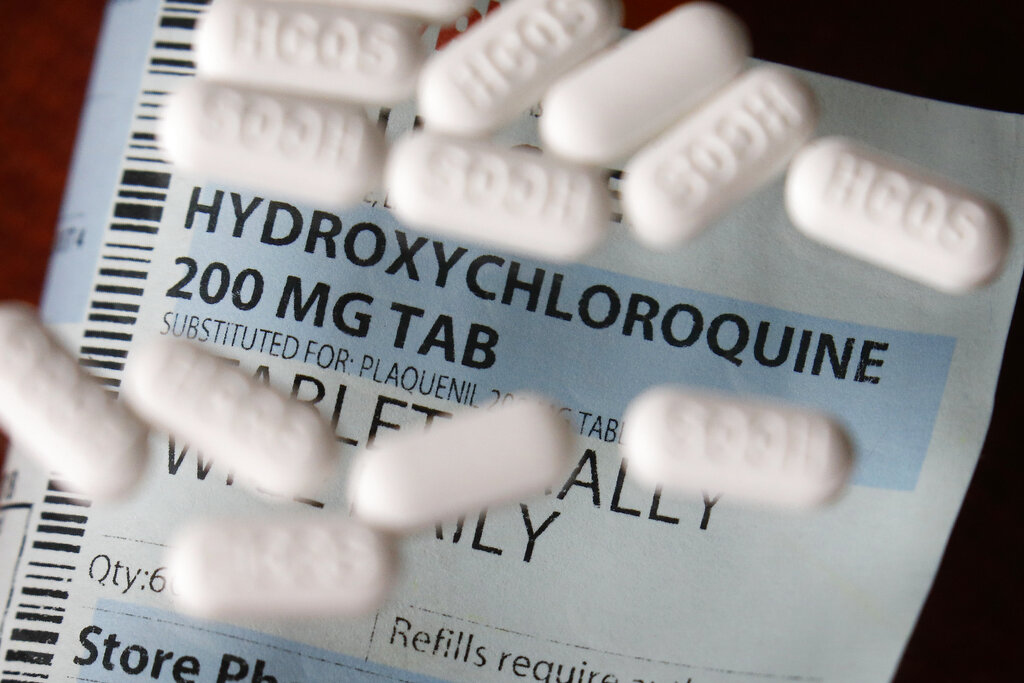
FILE – This Monday, April 6, 2020, file photo shows an arrangement of Hydroxychloroquine pills in Las Vegas. (AP Photo/John Locher,File)
A study performed in New York hospitals found no evidence of either harm or benefit from giving the malaria drug hydroxychloroquine to severely ill coronavirus patients.
“The risk of intubation or death was not significantly higher or lower among patients who received hydroxychloroquine than among those who did not,” the authors of the study said.
They said the study, published on Thursday in The New England Journal of Medicine, “should not be taken to rule out either benefit or harm of hydroxychloroquine treatment.”
“However, our findings do not support the use of hydroxychloroquine at present, outside randomized clinical trials testing its efficacy,” they said.
US President Donald Trump has frequently touted the use of hydroxychloroquine as a treatment for coronavirus patients.
Hydroxychloroquine and a related compound chloroquine have been used for decades to treat malaria, as well as the autoimmune disorders lupus and rheumatoid arthritis.
The observational study was conducted among emergency room patients at the New York-Presbyterian Hospital and Columbia University Irving Medical Center and funded by the National Institutes of Health.
For the study, 811 patients received two doses of 600 mg of hydroxychloroquine on the first day and 400 mg daily for four days.
Another 565 patients did not receive the drug.
Comparing the two groups, “there was no significant association between hydroxychloroquine use and intubation or death,” the study said.
Health Canada, the European Medicines Agency and the US Food and Drug Administration have warned against the use of hydroxychloroquine to treat COVID-19 outside of clinical trials.
US regulators last week authorized the emergency use of the experimental drug remdesivir against COVID-19 after it was shown in a major clinical trial to shorten the time to recovery in some coronavirus patients.